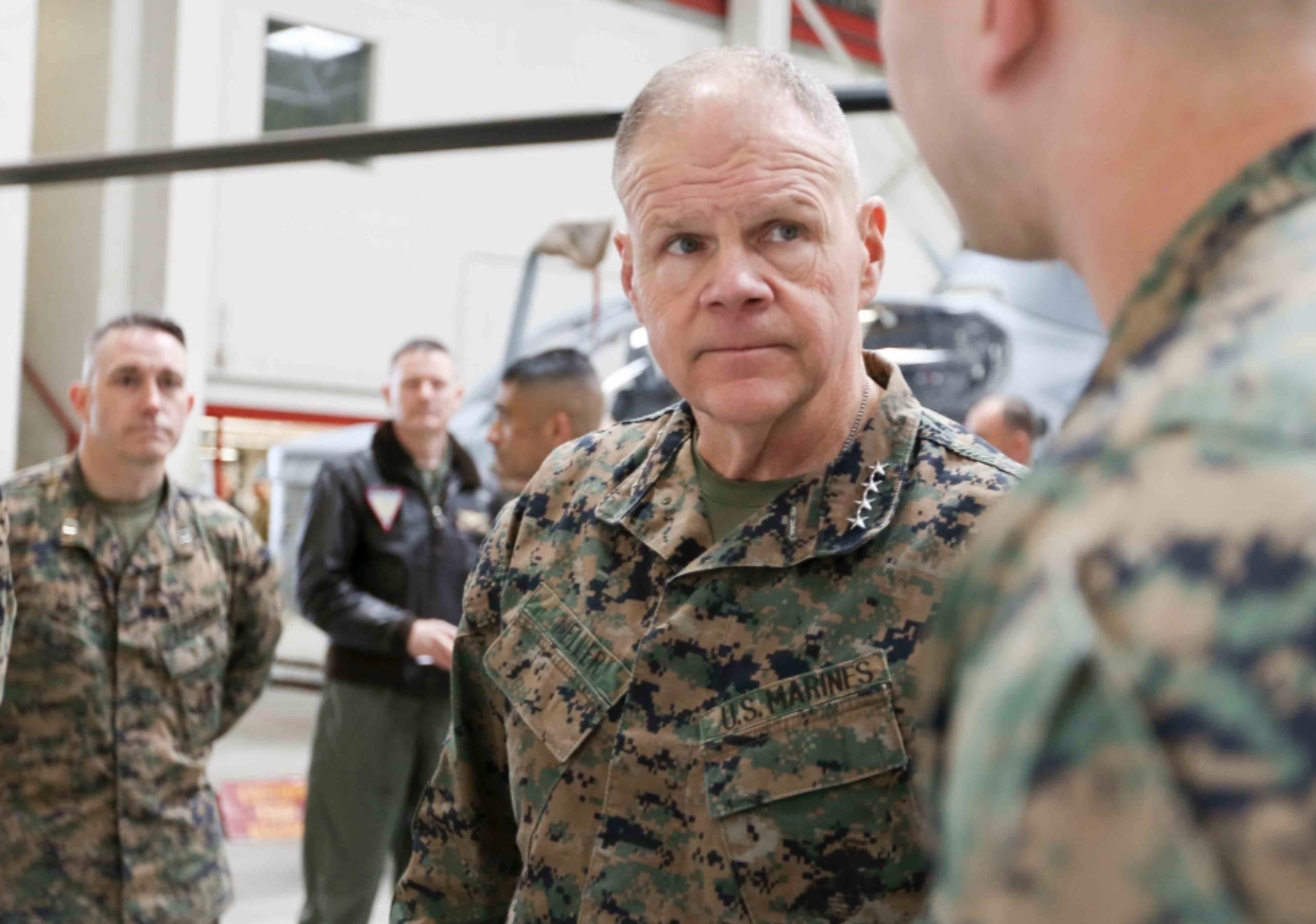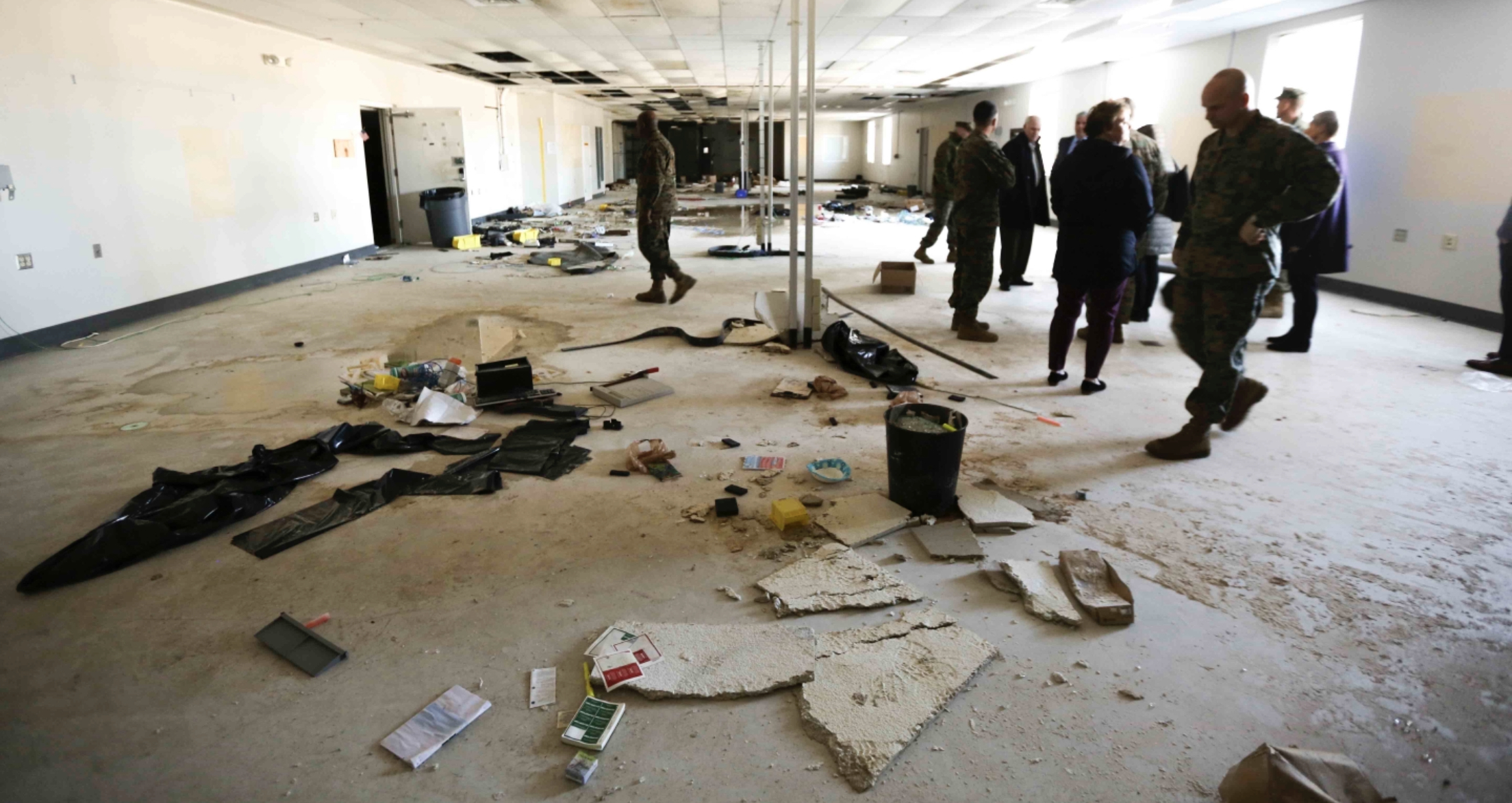
SAN DIEGO, Calif. – The commandant of the Marine Corps hopes the Pentagon and Congress can find money for hurricane damage repairs at Camp Lejeune, N.C., despite military construction funding being diverted for the Trump Administration’s border security plan.
Lawmakers and President Donald Trump agreed Friday to a bill that would provide $1.375 billion for 55 miles of border fencing, as well as other spending for law enforcement and humanitarian assistance needs along the U.S./Mexico border. According to a White House press statement, as much as $8.1 billion could be made available for border spending due to Trump declaring a national emergency at the border, including “up to $3.6 billion reallocated from Department of Defense military construction projects under the President’s declaration of a national emergency.”
The Pentagon added in a statement that “this declaration of a national emergency at the southern border requiring the use of the armed forces authorizes the secretary of defense to determine whether border barriers are necessary to support the use of the armed forces and to re-direct unobligated DOD MILCON funding to construct border barriers if required.”
Despite the hit to Fiscal Year 2019 military construction funding, Gen. Robert Neller told USNI News that the Marine Corps needs assistance beyond what was already appropriated this fiscal year to replace old buildings that were damaged by Hurricane Florence last September.
“We have a very clear stated requirement for repair at Camp Lejeune. The total bill is about $3.4, $3.5 billion,” Neller told USNI News at the WEST 2019 conference, cohosted by the U.S. Naval Institute and AFCEA.
“We don’t have money for that. If we have to pay that ourselves, it’ll take the MILCON budget of the Marine Corps for probably the next four years. So our requirement is well known within the Department of Defense, and I’m hopeful that now that the Congress has passed the border security thing and passed all the approps for the government for the rest of the year and whatever decision the President has made, it’ll clear the way for a discussion to take place about what we need to do to repair Camp Lejeune.”

Neller said the Marine Corps could effectively put $1.35 billion of that spending on contract this fiscal year if the money were available. And with the next hurricane season just four months away, he said he wants to hurry and get started on some of that work.
“The buildings at Camp Lejeune that were new, they weathered the hurricane. And this was a generational storm: it came in, the winds were strong enough to tear the roofs off 40-, 50-, 60-year-old buildings, and then it rained for three straight days. So the damage is not clearly visible like it is on the panhandle of Florida when (Hurricane) Michael came through with really high devastating winds that leveled the place. It’s all internal,” he said of the damage, which includes mold and other water damage.
“We’ve gone through, we’ve patched the roofs, but some of these buildings, we believe, the cost of repair is not a good way; they need to be replaced. But we have a requirement and I’m hopeful that now that the border security discussion has been settled, at least temporarily, that we’ll be able to get some attention on this.”
House Armed Services Committee chairman Rep. Adam Smith (D-Wash.) issued a critical statement on Trump’s decision to divert MILCON funding to the border, saying in part that “as the President begins to steal money from military needs to build his wall, Congress must conduct oversight to identify exactly which projects supporting servicemembers and their families the President has chosen to value less than this political stunt.” HASC ranking member Rep. Mac Thornberry (R-Texas) released a statement in support of border funding but adding that “I encourage the President not to divert significant Department of Defense funding for border security. Doing so would have detrimental consequences for our troops as military infrastructure was one of the accounts most deprived during the Obama-era defense cuts. And it would undercut one of the most significant accomplishments of the last two years – beginning to repair and rebuild our military. I hope that the President will pursue other options.”
The commandant warned that the repair bill “has got to be paid” and cannot be pushed to the back burner, as so often military construction is when money is tight. But he warned that, without sufficient help from Congress, paying for the hurricane damage at one Marine Corps installation could affect readiness throughout the Marine Corps.
“If we don’t get some help, we would have to pay that ourselves, and that would affect our readiness,” he said, since money would likely be internally reprogrammed and have to come from other accounts such as operations and maintenance or procurement.
“And we’ve made a lot of progress on our readiness because of the resources we’ve been given by the Congress, and we don’t want to go back. So we’re going to need some assistance, otherwise we will have to take some cuts in other places.”





